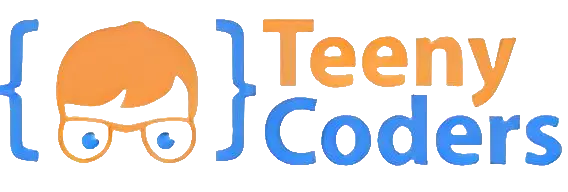A summer code camp for kids is a great way to introduce children to the world of programming and technology. Summer vacations are of great help for kids to enhance their potential and skillset. Kids should spend their time learning new technologies rather than spending time on activities which don’t earn them recognition and increase their potential to learn new things.
Teeny Coders has organized a summer code camp for kids from grade 1-12. Our code camp is designed according to following prospects:
Define our audience:
Decide on the age group of the children you want to target and tailor your curriculum and activities accordingly. Our course activities are designed to make learning easier for kids.
Specially Designed curriculum:
We have developed a curriculum that is engaging, age-appropriate, and fun. Consider topics such as programming languages, story telling using block-based programming, animations, and game design.
Experienced instructors:
Our instructors have experience working with children and are knowledgeable in the topics you want to cover. All the course instructors are certified in their domains.
Provide necessary equipment:
Make sure you have enough equipment for each child, including computers and software, as well as any hardware for robotics or electronics projects.
Offer hands-on learning:
Encourage hands-on learning by incorporating project-based activities and challenges into the curriculum.
Make coding fun:
We know it is a summer camp, so we make sure to include fun activities throughout the day to keep the children engaged and energized. These fun activities are designed specifically for kids to increase their creativity.
Showcase the final projects:
At the end of the camp, we give the children opportunity to showcase their final projects to friends and family. We also give them assignments-based projects during the course to keep making their interest. Overall, a summer code camp for kids can be a great way to introduce children to the world of programming and technology while also providing a fun and engaging summer experience.
Effect Of Summer Code Camp On Child’s growth
Summer coding camps can offer numerous benefits for kids, including:

Develops problem-solving skills:
Coding requires breaking down complex problems into smaller, manageable steps. Kids learn how to think logically and analytically, improving their problem-solving abilities.
Enhances creativity:
Coding encourages kids to think creatively and come up with innovative solutions to problems. They can explore different ways to approach a problem and experiment with different coding techniques.
Teaches critical thinking:
Coding involves debugging and finding errors in code. Kids learn how to think critically and identify the root cause of problems.
Builds teamwork skills:
Many coding camps involve group projects. Kids learn how to work in teams, communicate effectively, and collaborate to complete tasks.
Provides a valuable skill:
Coding is a highly sought-after skill in today’s job market. Learning to code at a young age can give kids a competitive advantage in their future careers.
Boosts confidence:
When kids learn to code and build their own projects, they gain a sense of accomplishment and pride. This can boost their self-esteem and confidence.
Fosters independence:
Coding requires kids to think independently and solve problems on their own. This can help them become more self-sufficient and independent.
Helping website for Summer Code Camp
Our summer coding camp offers a fun and engaging way for kids to learn valuable skills that can benefit them in the future. Let’s give you a fun way to learn new things while enjoying this summer. There are many great programming sites that can help boost your learning. These websites have a lot of helpful material to help to learn faster. It contains authentic documentation of programming languages. Here are a few:
Stack Overflow is a community-driven Q&A site where programmers can ask and answer questions about programming.
GitHub is a platform for hosting and collaborating on code, as well as discovering new projects and learning from other programmers. GitHub lets you connect with coding communities around the world.
CodePen is a social development environment for front-end developers, offering a range of tools for building and testing code. CodePen is very good online editor to practice your website design along with the animations.
W3Schools offers tutorials and references for web development languages, including HTML, CSS, JavaScript, and PHP. It contains details on each component of website development languages. W3Schools can help you master the full stack development through its detailed notes on every element.
JavaTpoint also offers detailed notes on different programming languages. JavaTpoint contains documentation for back-end programming languages mostly.
20 Tips To Start Summer Code Camp:
- Choose a programming language that interests you and learn the basics of it.
- Start with small projects or exercises to get familiar with the language.
- Join online communities and forums to connect with other programmers and get help when needed.
- Read books or online tutorials to deepen your understanding of the language.
- Attend coding bootcamps or workshops to gain practical experience and learn from experts.
- Set clear goals and deadlines for yourself to stay motivated.
- Practice regularly to reinforce what you’ve learned and develop good coding habits.
- Collaborate with others on coding projects to build teamwork and communication skills.
- Keep a record of your progress and accomplishments to help track your growth.
- Attend meetups or conferences to network with other programmers and learn about new technologies.
- Seek out mentorship from experienced programmers to gain valuable guidance and feedback.
- Work on open-source projects to contribute to the coding community and build your portfolio.
- Learn to use debugging tools to identify and fix errors in your code.
- Utilize online resources such as Stack Overflow and GitHub to help troubleshoot and share code.
- Experiment with different programming techniques to discover what works best for you.
- Stay up to date with industry trends and advancements to remain relevant in the field.
- Take breaks and practice self-care to avoid burnout and maintain productivity.
- Use visualization tools such as flowcharts or mind maps to plan out your code before writing it.
- Test your code thoroughly to ensure it is functioning properly and effectively.
- Have fun and enjoy the process of learning and growing as a programmer.


